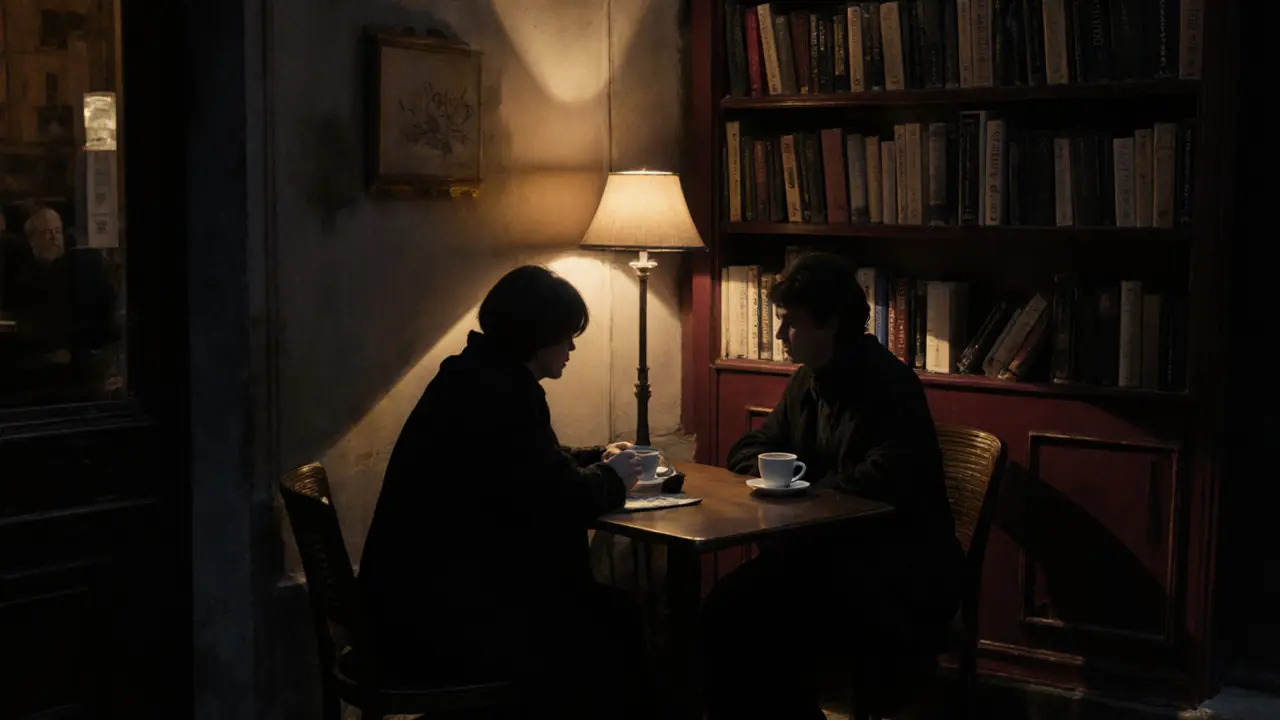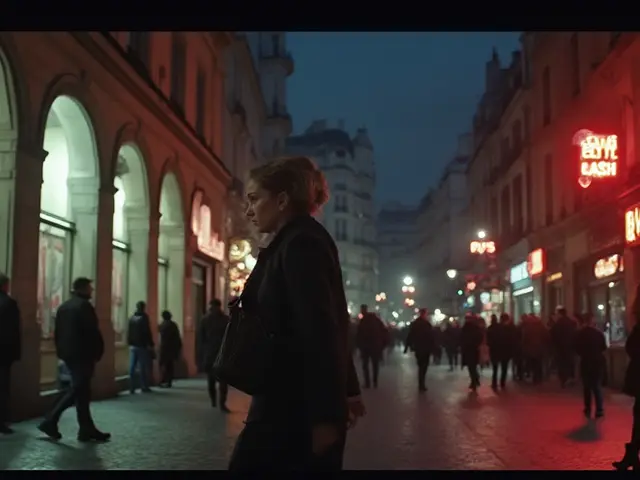Paris isn’t just about the Eiffel Tower, croissants, and café culture. Beneath its polished surface lies a world of ultra-discreet, high-end companionship-where privacy isn’t an option, it’s the standard. If you’re looking for more than a tourist attraction, and you want someone who understands the rhythm of the city, the subtleties of French elegance, and the unspoken rules of silence, then you’re not just hiring a companion-you’re accessing a carefully curated experience.
What Makes an Escort Experience in Paris ‘Exclusive’?
Not all escort services in Paris are the same. The difference between a standard arrangement and an exclusive one comes down to three things: vetting, discretion, and context.
Exclusive providers don’t advertise on public platforms. They don’t use photos with obvious branding or location tags. Their clients are referred through trusted networks-lawyers, diplomats, executives, or long-term patrons who value confidentiality above all. These aren’t people you find on a website with a chatbot. They’re selected through interviews, background checks, and personal references that span years.
What sets them apart isn’t just appearance. It’s presence. A woman who knows how to navigate a private dining room at Le Cinq without drawing attention. Who can discuss art at the Musée d’Orsay with the depth of a curator, not a script. Who knows which restaurants have private entrances, which hotels allow anonymous check-ins, and which neighborhoods feel safe after midnight.
The Hidden Rules of Discretion
In Paris, the law doesn’t ban companionship-it bans solicitation. That’s why the most exclusive services operate in a legal gray zone that’s carefully managed. No public profiles. No fixed prices listed. No contracts signed. Everything is verbal, informal, and built on mutual trust.
Here’s how it works in practice: You’re introduced through someone who’s already been vetted. The first meeting is usually over coffee in a quiet corner of Saint-Germain-des-Prés, not a hotel lobby. The conversation lasts an hour. No money changes hands. No promises are made. If both parties feel aligned, the next step is scheduled-quietly, with no texts, no emails, just a single phone call.
Communication is minimal. No social media. No photos shared after. No names exchanged unless both agree. The client’s identity is never recorded. The escort’s real name? Often never revealed. She’s known by a first name only, or sometimes just a nickname that changes with each season.
Where Do These Experiences Take Place?
The setting matters as much as the person. The most exclusive experiences don’t happen in chain hotels or tourist zones. They unfold in places that feel like secrets:
- A private apartment in the 7th arrondissement, owned by a family trust, with no digital locks or cameras.
- A rented villa in Saint-Germain-en-Laye, accessible only by a code known to three people.
- A reserved table at Le Comptoir du Relais, where the owner knows not to ask questions.
- A yacht moored along the Seine, lit only by candles, with no GPS tracking.
These aren’t luxury hotels you can book online. They’re spaces that exist outside the public record. Access requires more than money-it requires understanding. You don’t ask where you’re going. You show up, and you’re led.

Who Are the Women Behind These Services?
They’re not stereotypes. They’re not college students looking for extra cash. Many have advanced degrees-literature, philosophy, international relations. Some worked in galleries, museums, or fashion houses before stepping into this world. Others are multilingual diplomats’ spouses who learned to navigate the city’s undercurrents after years abroad.
They don’t wear uniforms. They don’t follow scripts. They read the room. If you want to talk about your divorce, they listen. If you want silence, they offer tea and a window seat overlooking the Luxembourg Gardens. If you want to dance barefoot in a penthouse at 3 a.m., they’ll find the right playlist and turn off the lights.
What they all share is a deep understanding of boundaries. They know when to speak, when to stay quiet, and when to leave without saying goodbye. They’re not there to please. They’re there to be present-in a way that feels rare in a world of constant connection.
How Much Does It Really Cost?
Prices aren’t posted. They’re negotiated privately, based on time, location, and the nature of the engagement. A three-hour dinner and walk through Montmartre might start at €1,500. An overnight stay in a private residence could be €4,000 or more. Weekends, holidays, and special requests-like arranging a surprise at the Palais Garnier-can double that.
Payment is always in cash. No bank transfers. No digital receipts. No invoices. The money is handed over in an envelope, sometimes left on a table, sometimes placed in a coat pocket. No receipt is ever given. No confirmation email follows.
What you’re paying for isn’t just time. It’s access. To a world that doesn’t exist on Google Maps. To a person who can make you feel seen without ever asking for your name. To a moment that won’t be recorded, shared, or remembered by anyone else.

Why People Choose This Over Anything Else
Most people don’t seek out these experiences because they’re lonely. They seek them because they’re tired of performance.
In a world where every interaction is documented, tagged, and shared, these encounters are the opposite. No filters. No expectations. No need to explain who you are or why you’re there. Just presence. Just connection. Just quiet.
One client, a tech founder from Silicon Valley, told me last year: “I spend my days managing teams, answering emails, posting on LinkedIn. For two hours in Paris, I don’t have to be anyone. I just have to be.”
That’s the real value. Not luxury. Not beauty. Not even sex. It’s the freedom to be unobserved.
What to Avoid
There are scams. There are people who promise “exclusive” experiences but deliver tourist traps or underage individuals. Red flags include:
- Photos with obvious studio lighting or branded backgrounds
- Website with booking forms, live chat, or PayPal options
- Prices listed publicly or advertised on social media
- Requests for personal information before the first meeting
If it feels too easy, it’s not exclusive. If you can find it with a search engine, it’s not private.
True exclusivity doesn’t advertise. It waits.
Final Thoughts
Paris has always been a city of hidden layers. The most exclusive escort experiences aren’t about sex. They’re about silence. About being known without being seen. About finding someone who understands that sometimes, the most luxurious thing you can give yourself is the freedom to disappear-even if just for a night.
It’s not for everyone. But for those who’ve tasted the noise of the modern world, it’s one of the few things that still feels real.
Are these services legal in Paris?
Companionship itself is not illegal in Paris. What’s prohibited is solicitation in public spaces, advertising, and operating brothels. Exclusive services avoid all three by operating through private referrals, no public advertising, and cash-only transactions. They exist in a legal gray area, but they’re not prosecuted unless they violate public decency laws or involve coercion.
Can I find these services online?
No. Any website, Instagram profile, or dating app listing claiming to offer “exclusive Paris escorts” is either a scam or a low-tier service. Real exclusive providers never advertise. They’re found through word-of-mouth referrals, often after years of trust-building. If you can Google it, it’s not exclusive.
How do I get introduced to these services?
You need a trusted connection. That could be a long-term client, a luxury concierge, a high-end hotel butler, or even a private art dealer who’s been in Paris for decades. There’s no application process. No sign-up form. You’re either referred-or you’re not. Trying to force your way in will only lead to disappointment-or worse.
Is it safe to pay in cash?
Yes, and it’s standard. Cash is the only accepted method because it leaves no digital trail. No receipts, no bank records, no transaction history. This protects both parties. If someone asks for a wire transfer, credit card, or PayPal, walk away. That’s not exclusivity-that’s risk.
Do these women work regularly?
Most don’t work full-time. Many have other careers or personal projects. Some work only a few times a month, often choosing clients based on chemistry, not money. They prioritize quality over quantity. The best ones are selective, not desperate. That’s why access is so limited.




